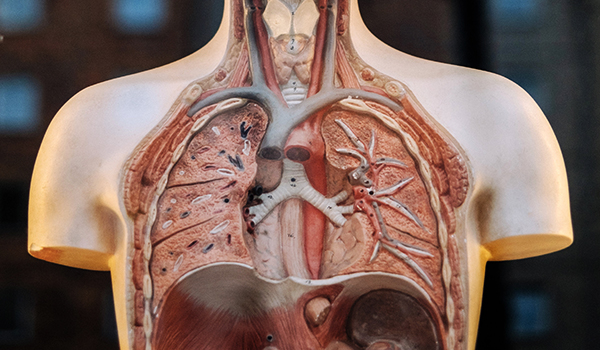
There are so many good causes that have made September their awareness month, we didn’t want to just focus on any one in particular. While we’d love to talk about all of them, below is a quick overview of a just a few of the causes you should be aware of this September. Plus, it’s always good to know the warning signs to catch diseases early. If you suspect something is wrong with you or a loved one, put that health insurance to work and go see a doctor.
National Atrial Fibrillation Awareness Month
Atrial fibrillation (AFib) is an irregular heartbeat. Normally, your heart beats 60 to 100 times per minute. When you have AFib, your heart rate can be as high as 175 beats per minute. An irregular heartbeat can cause blood to collect in the heart, which may form a clot that can travel to your brain and lead to a stroke. While this is more common in those 65 or over, it can happen at any age.
Know the symptoms:
- General tiredness or weakness
- Rapid and irregular heart beat
- Fluttering in the chest
- Dizziness or lightheadedness
- Anxiety or confusion
- Shortness of breath
- Chest pain or pressure
- Low blood pressure
Childhood Cancer Awareness Month (#MakeItGoldForKids)
According to CureSearch.org, childhood cancer is the leading cause of death by disease among children under the age of 15 in the United States. Every day, 43 children are diagnosed with cancer, with the average age of diagnosis just six years old. More than 40,000 children undergo treatment for cancer each year. There are so many great ways that you can get involved this month to raise awareness. Simply google Childhood Cancer Awareness Month, choose your favorite charity, and help spread the word.
Blood Cancer Awareness Month
There are many types of blood cancer: leukemia, Non-Hodgkin, Hodgkin lymphoma and multiple myeloma. Every three minutes a person is diagnosed with blood cancer. Today, 1.5 million people are living with, or are in remission from a form a blood cancer.
Know the symptoms:
- Fever, chills
- Persistent fatigue, weakness
- Loss of appetite, nausea
- Unexplained weight loss
- Night sweats
- Bone/joint pain
- Abdominal discomfort
- Headaches
- Shortness of breath
- Frequent infections
- Itchy skin or skin rash
- Swollen lymph nodes in the neck, underarms, groin
Learn more at the American Cancer Society.
National Cholesterol Education Month
There are two types of cholesterol, the good kind (HDL) and the bad kind (LDL). Too much of the “bad” cholesterol can lead to heart disease, heart attack or stroke. Great news though—under the Affordable Care Act, cholesterol screening is on the list of free preventive services offered to you through your insurance carrier. And what better time than during Cholesterol Education Month to get your levels checked. Catching elevated levels of cholesterol early can help you get it under control.
Ovarian Cancer Awareness Month
Each year, approximately 21,980 women will be diagnosed with ovarian cancer. Ovarian cancer typically affects women in their fifties and sixties. Detected at its earliest stage, the five-year survival rate is more than 93 percent, but unfortunately, many women do not seek treatment until the cancer has spread. Be sure to go for regular check-ups and make sure your female family members do as well.
Know the symptoms (though they can be nonspecific and associated with other health issues):
- Bloating
- Pelvic or Abdominal pain
- Difficulty eating or feeling full quickly
- Urinary urgency or frequency
- Nausea, indigestion, gas, constipation or diarrhea
- Extreme fatigue
- Shortness of breath
- Backaches
- Weight Gain
Learn more at the National Ovarian Cancer Coalition.
Prostate Cancer Awareness Month
One of the most common cancers among American men and the second leading cause of cancer death in men to lung cancer. According to the American Cancer Society, 1 in 7 men will be diagnosed with prostate cancer during his lifetime, with the average age of diagnosis around 66. While it is a serious disease, it is treatable. In fact, more than 2.9 million men in the US who have been diagnosed with prostate cancer are still alive.
Know the symptoms:
- A need to urinate frequently, especially at night
- Difficulty starting urination or holding back urine
- Weak or interrupted flow of urine
- Painful or burning urination
- Difficulty in having an erection
- Painful ejaculation
- Blood in urine or semen
- Frequent pain or stiffness in the lower back, hips, or upper thighs
World Alzheimer’s Month
The Alzheimer’s Association defines the disease as the most common form of dementia, a general term for memory loss and other intellectual abilities serious enough to interfere with daily life. Alzheimer’s disease accounts for 60 to 80 percent of dementia cases. There are different symptoms for each stage of the disease.
Know the symptoms (early stage):
- Problems coming up with the right word or name
- Trouble remembering names when introduced to new people
- Having greater difficulty performing tasks in social or work settings
- Forgetting material that one has just read
- Losing or misplacing a valuable object
- Increasing trouble with planning or organizing
Symptoms progress over time, and will require greater levels of care. In its latest stages, Alzheimer’s causes individuals to lose the ability to respond to their environment, to carry on a conversation and, eventually, to control movement. There still is no cure, but some treatments are promising in slowing the progression of the disease.
For more information on later-stage symptoms or Alzheimer’s in general, visit the Alzheimer’s Association.
Awareness months are important to help us catch problems early. If you have health insurance, take advantage of all the services available to you and get checked out if you think anything is wrong. If you don’t have health insurance, open enrollment starts November 1 and we’re here to help you find a plan that fits your needs and budget.





